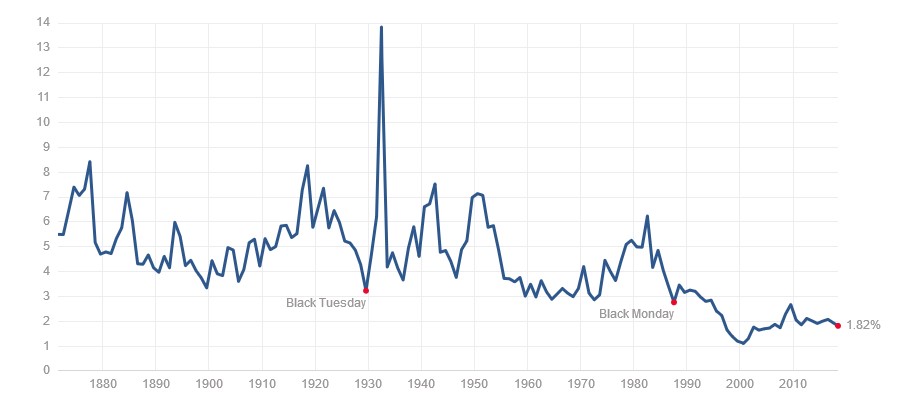U.S. Money market funds have just posted record cash outflows for the week ended Wednesday. Net outflows for the week clocked in at $51 billion, the 7th largest ever and the highest since 2011 according to Thomson Reuters Lipper Data.
The massive drawdown in money fund assets has been chalked up to corporate tax receipts and, perhaps more significantly for investors, payment for Treasury supply.
Last week, companies were scrambling to send cash to the government just ahead of the tax deadline. The Treasury reported on June 15 that it had received $26 billion in corporate taxes, significantly less than the $42.2 billion it received in the prior year, thanks to generous tax cuts.
Money Market Funds (MMFs) are low-yield savings options offered by mutual funds, brokerages and banks. The funds invest in high-quality and highly liquid assets including securities, Treasuries and commercial paper. Companies use MMFs as alternatives to bank accounts for managing their cash, while individuals tend to use them for parking their cash after selling stocks before they decide where to reinvest their money.
Meanwhile, the Treasury raised about $43 billion in new cash during the week as investors settled on their Treasuries purchases. Treasury received a total of $68 billion in payments for three-year, 10-year and 30-year bonds.
Part of those MMF outflows might have found their way into stocks.
Equity funds posted a net outflow of $1.27 billion, marking the third consecutive week of cash outflows from the funds--again according to Lipper. Related: Hackers Lift $30 Million In Crypto From South Korean Exchange
The majority of those equity outflows came from equity exchange-traded funds (ETFs) to the tune of $5.8 billion. In sharp contrast, US equity mutual funds managed to post net inflows of $4.6 billion.
Capital flight from emerging markets continued unabated, with investors pulling $4.36 billion from emerging market equity funds and another $452 million from emerging market debt funds.
Hunting for Higher Yields
The huge inflows into government debt is probably to be expected in the current environment.
After all, Treasury Yields have been on a tear, and even short-term Treasuries look more attractive than stocks. The 10-Year Treasuries are currently yielding 2.94 percent compared to a mere 1.82 percent dividend yield by the S&P 500, a multi-year low.

(Click to enlarge)
The S&P 500 is currently flashing a 2.85 percent year-to-date return, not nearly enough to meet the risk premium that investors demand for investing in riskier stocks in lieu of bonds. As long as stock markets remain tepid, investors are likely to increasingly turn their attention to higher yielding government bonds.
And Shunning ETFs
ETFs track a collection of stocks, with some like the SPY and IWM tracking whole markets (S&P 500 and Russell 2000, respectively). These investment instruments have become very popular in recent years, with the ETF market exceeding $5.1 trillion in total assets in January.
Related: The Wild Card In The New Eurozone Budget Agreement
But lately they have hit a snag.
U.S. stock ETF returns are in the red in the year-to-date as investors continue fleeing. Net new assets flowing into exchange traded funds dropped sharply during February to a mere $12.4 billion during the height of the market crash. That marked a huge 82-percent decline compared to the previous year’s comparable period.
As long as the broad market remains lukewarm, the ETF market is likely to continue seeing net asset outflows.
By Charles Benavidez for Safehaven.com
More Top Reads From Safehaven.com:
















